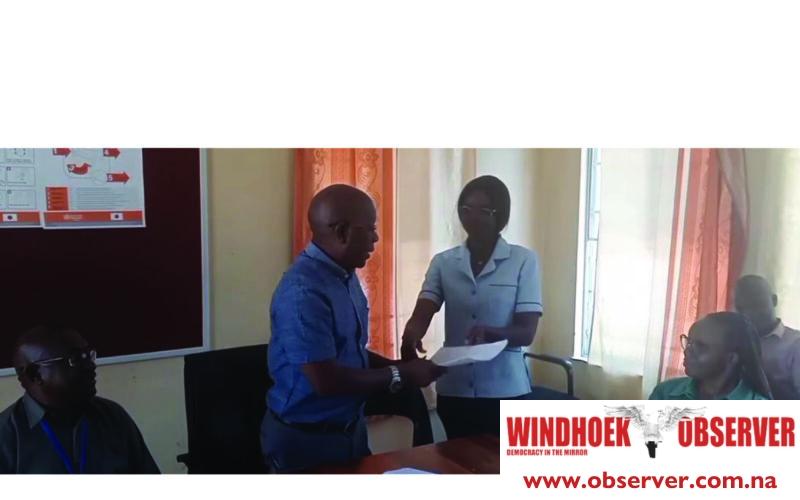Justicia Shipena
A group of more than 17 health assistants in Ohangwena say the government has left them in the cold and remained silent after their contracts were terminated following the freezing of United States aid.
The assistants were employed under Potentia and funded by the United States President’s Emergency Plan for AIDS Relief (PEPFAR).
On Wednesday, they handed a petition to the Ohangwena health directorate, pleading to be re-employed.
Speaking on behalf of the group, Selma Heita said they had served the ministry for over a decade and felt abandoned.
“It’s really saddening to hear that our contract is ending and we are being thrown away with nowhere to go. We have worked for the Ministry of Health and Social Services for a decade, and we are not supposed to go home like this,” she said.
Heita said the group played a key role in the region’s fight against HIV and other diseases, helping Namibia achieve the 95-95-95 treatment goals and supporting emergency responses such as the Covid-19 pandemic.
“We worked hard and even volunteered beyond working hours. We took part in HIV testing, cancer screening, TB screening, and infant feeding programmes,” she said.
The termination of their contracts comes amid a 90-day freeze on foreign aid ordered by US President Donald Trump. The decision has affected hundreds of workers in health projects funded by the US across Namibia and other African countries.
Around 262 employees at a Namibian organisation that supports HIV patients are also facing uncertainty due to the freeze.
Last month, the US Supreme Court sided with Trump, allowing him to halt the disbursement of US$4 billion (about N$68.8 billion) in foreign aid.
The ruling overturned a lower court’s decision and gave the administration control over reallocating humanitarian funding.
On January 20, Trump signed the directive to suspend all financial support distributed through the United States Agency for International Development (USAID) for 90 days.
The move disrupted several programmes in Africa that rely on US assistance to fund healthcare, food, and security initiatives.
In 2023, USAID allocated about US$12.1 billion (nearly N$209.57 billion) to countries in sub-Saharan Africa to improve healthcare, deliver food aid, and strengthen security.
Part of this funding supports PEPFAR, which is one of the largest global initiatives to fight HIV and AIDS.
Heita said the job losses are painful, given Namibia’s progress with US-funded HIV programmes.
Two years ago, Namibia received an award from PEPFAR for its progress toward meeting the UNAIDS 95–95–95 targets and ending HIV transmission by 2030.
Last year, the World Health Organization (WHO) recognised Namibia for achieving the Silver Tier on the Path-To-Elimination (PTE) of mother-to-child transmission (MTCT) of Hepatitis B and the Bronze Tier for MTCT of HIV. Namibia became the first country in Africa and the first high-burden nation globally to reach this milestone.
Heita said the group remains hopeful that the ministry will reconsider their case.
“We are still willing and ready to work hard if we are given another chance. But it breaks our hearts that after serving so long, we are just told our contracts are over,” she said.
The group said they have written to the Ohangwena regional health director, the managing director and the office of the prime minister but have not received a response.
“We are crying inside our souls because losing a job in today’s world is painful. We hope the ministry will listen and reconsider,” Heita added.
By 2020, the U.S. government had invested about US$1.6 billion in HIV treatment and prevention in Namibia through PEPFAR since 2005.
In the same year, reports show that the US government provided US$89 million (about N$1.6 billion) for HIV programmes in Namibia, up from US$81 million (around N$1.5 billion) given in 2019.




